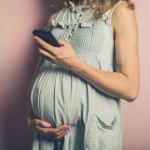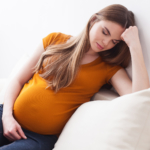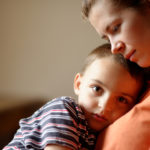Anxiety disorders affect nearly 1 in 5 adults in the United States, and women are about twice as likely as men to suffer from an anxiety disorder at some point in their lifetime. According to a recent meta-analysis published in the Journal of Clinical Psychiatry, one in five pregnant women experience at least one type of anxiety disorder.
Given the high prevalence of anxiety disorders among women, the Women’s Preventive Services Initiative (WPSI) issued a recommendation on April 1st stating that all adolescent and adult women, including those who are pregnant or postpartum, should be screened for anxiety. The American College of Obstetricians and Gynecologists (ACOG) now recommends that clinicians screen women at least once during the perinatal period for depression and anxiety using a standardized, validated tool; however, few studies have addressed screening for anxiety in pregnant and postpartum women.
Anxiety is so common and is often a very normal response to many life events and transitions, one of the challenges that faces women and the providers who care for them is how to distinguish normal or appropriate anxiety in a given situation from something that requires further attention and/or treatment. A variety of instruments have been used to screen for anxiety disorders in perinatal women, including the Edinburgh Postnatal Depression Scale (EPDS) and its 3-item anxiety subscale (EPDS-3A), the Generalized Anxiety Disorder 2- and 7-item Scales (GAD-2 and GAD-7), a clinically derived alternatieve called the Anxiety Disorder – 13 scale (AD-13), and the Perinatal Anxiety Screening Scale.
It appears that many of the tools we commonly use in this setting, specifically the EPDS and the GAD-7, may not be ideal screening tools for perinatal anxiety. These two questionnaires focus mostly on generalized anxiety symptoms, so if we restrict ourselves to these screening tools, we might be missing women with OCD, PTSD, panic disorder, and social anxiety disorder. While screening for perinatal anxiety seems like a reasonable recommendation, we need more data to determine how best to do this.
Ruta Nonacs, MD PhD
Draft Recommendation Promotes Screening Women for Anxiety (eHealth News)








Leave A Comment